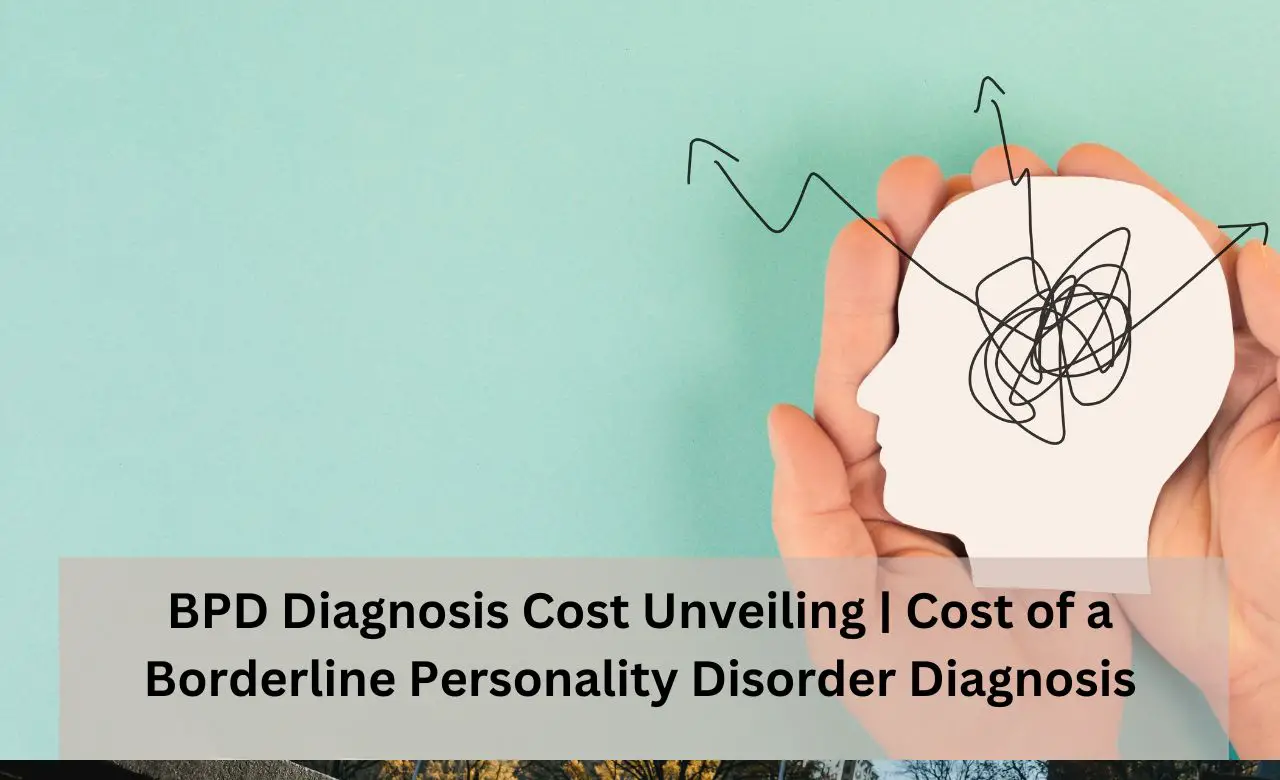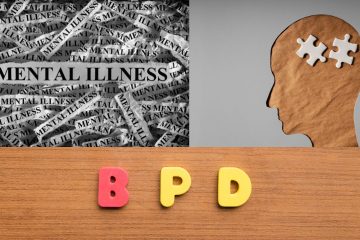BPD Diagnosis Cost: A diagnosis of Borderline Personality Disorder (BPD) is a clinical assessment made by a qualified mental health professional, typically a psychiatrist or psychologist, that determines whether an individual meets the specific criteria outlined in the Diagnostic and Statistical Manual of Mental Disorders (DSM-5), published by the American Psychiatric Association (APA).
The diagnosis is not based on a single test but rather on a comprehensive evaluation that usually involves:
- In-depth clinical interview: This is a detailed conversation where the mental health professional explores the individual’s personal history, symptoms, and experiences. They may ask questions about their thoughts, feelings, behaviors, relationships, and family functioning.
- Psychological testing: This may involve standardized personality tests designed to assess various aspects of personality functioning, including impulsivity, emotional dysregulation, and interpersonal relationships. These tests are not definitive for diagnosing BPD but can provide additional information to support the clinical interview findings.
The diagnosis of BPD is made based on the presence of five or more of the following nine criteria:
- Fear of abandonment: This can manifest as intense anxiety about being left alone or feeling unloved.
- Pattern of unstable and intense relationships: This can involve idealizing others, quickly switching between love and hate, and having difficulty maintaining healthy, stable relationships.
- Identity instability: This can involve a weak or unclear sense of self, often accompanied by frequent changes in values, goals, and self-image.
- Impulsivity in at least two areas: This can involve impulsive spending, unsafe sex, substance abuse, reckless driving, or binge eating.
- Recurrent suicidal ideation or threats, or self-harm: This may involve thoughts of suicide, suicidal gestures, or deliberate self-harm behaviors like cutting or burning.
- Affective instability: This refers to rapid and frequent shifts in mood, often lasting only a few hours and ranging from intense happiness to sadness, anger, or anxiety.
- Chronic feelings of emptiness: This involves a persistent feeling of inner emptiness, boredom, or lack of meaning.
- Inappropriate anger: This can involve difficulty controlling anger, expressing anger in explosive or aggressive ways, or having frequent angry outbursts.
- Transient, stress-related dissociative symptoms: This may involve feeling detached from oneself or reality, experiencing derealization (feeling like surroundings are unreal), or depersonalization (feeling detached from one’s body).
It’s crucial to remember that a diagnosis is not a label but rather a tool used to guide treatment decisions and support individuals in managing their symptoms and improving their quality of life. If you are concerned that you or someone you know might have BPD, seeking professional help from a qualified mental health professional is essential. They can provide a proper diagnosis, develop an individualized treatment plan, and offer support and guidance on the path to recovery.
The cost of diagnosing borderline personality disorder (BPD) can vary depending on several factors, including:
- Location: The cost of living in your area will affect the cost of healthcare services, including mental health evaluations.
- Type of provider: You may be seen by a psychiatrist, psychologist, or other mental health professional, and their fees can vary.
- Insurance coverage: If you have health insurance, your out-of-pocket costs for a diagnosis will depend on your plan’s coverage and deductible.
4 Types of BPD Test: Quiet BPD Test
Here’s a general breakdown of the potential costs:
- Initial consultation: This could cost anywhere from $100 to $300.
- Psychological testing: This may involve standardized personality tests and could cost several hundred dollars.
- Diagnostic interview: This could be included in the initial consultation or billed separately and could cost around $100-$200 per hour.
Total cost: With these factors in mind, the total cost of a BPD diagnosis can range from $500 to $2,000 or more.
It is important to note that these are just estimates, and the actual cost may be higher or lower. If you are concerned about the cost of getting a diagnosis, it is important to talk to your doctor or insurance provider to get a better idea of what your out-of-pocket costs would be.
Unveiling the Cost of a Borderline Personality Disorder Diagnosis: Navigating the Financial Landscape
Borderline personality disorder (BPD) is a complex mental health condition characterized by unstable moods, unstable relationships, impulsive behaviors, and a distorted self-image. Seeking a diagnosis for BPD can be a crucial step towards obtaining proper treatment and improving quality of life. However, understanding the associated costs can be a significant hurdle, especially considering the financial burden mental health challenges often present.
This article delves deep into the intricacies of BPD diagnosis costs, exploring the various factors that influence them, providing crucial statistics, and offering guidance on navigating the financial landscape.
Unveiling the Cost Variables: A Multifaceted Landscape
The cost of a BPD diagnosis is not a one-size-fits-all answer. It’s a dynamic equation influenced by several key variables:
- Geographical Location: Like any healthcare service, the cost of mental health professionals and associated services varies depending on your location. Areas with a higher cost of living often translate to higher consultation and testing fees.
- Provider Type: The type of mental health professional you consult plays a role. Psychiatrists, who can prescribe medication, typically have higher fees compared to psychologists or other mental health professionals.
- Insurance Coverage: Having health insurance can significantly reduce your out-of-pocket costs. However, the extent of coverage varies significantly between plans. Deductibles, co-pays, and in-network vs. out-of-network coverage significantly impact your financial responsibility.
Unveiling the BPD Diagnosis Cost: Statistics Laying Bare the Realities
While pinpointing an exact cost is challenging, research and studies offer valuable insights into the financial landscape of BPD diagnosis:
- Initial Consultation: The initial consultation with a mental health professional can range from $100 to $300.
- Psychological Testing: Standardized personality tests, often used in conjunction with clinical interviews, can cost several hundred dollars, potentially reaching $1,000 or more depending on the number and complexity of tests administered.
- Diagnostic Interview: This in-depth conversation with a qualified professional to understand your experiences and symptoms can cost around $100-$200 per hour.
Combining these estimates, the total cost of a BPD diagnosis can range from $500 to $2,000 or even more, with some studies suggesting potential costs exceeding $5,000.
Important Note: These are merely estimates, and the actual cost can significantly deviate based on the aforementioned variables.
BPD Diagnosis Cost: Strategies for Cost Management
Given the potential financial burden, here are some strategies to navigate the process:
- Contact your insurance provider: Understanding your specific plan’s coverage for mental health services, including BPD diagnosis, is crucial. This helps you estimate out-of-pocket costs and explore in-network providers for potential cost savings.
- Seek community resources: Mental health clinics, community centers, and support groups might offer low-cost or even free diagnostic services, especially for individuals with financial constraints.
- Explore sliding scale options: Some mental health professionals offer services on a sliding scale, adjusting fees based on your income. Inquire about this possibility during initial contact.
- Consider teletherapy: Teletherapy, or online therapy, can sometimes offer more affordable options compared to in-person consultations, especially if you reside in a remote location with limited access to mental health professionals.
Remember, prioritizing your mental health is crucial. Don’t let cost deter you from seeking a diagnosis and pursuing the appropriate treatment path. Explore your options, seek guidance from healthcare professionals, and remember, there are resources available to help you manage the financial aspects of this journey.



